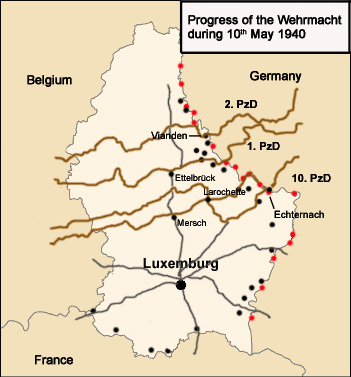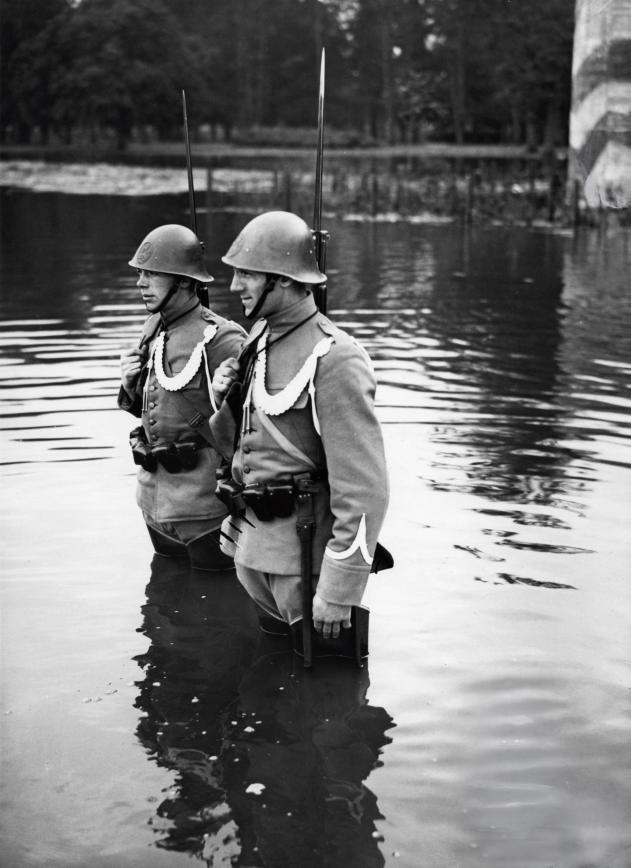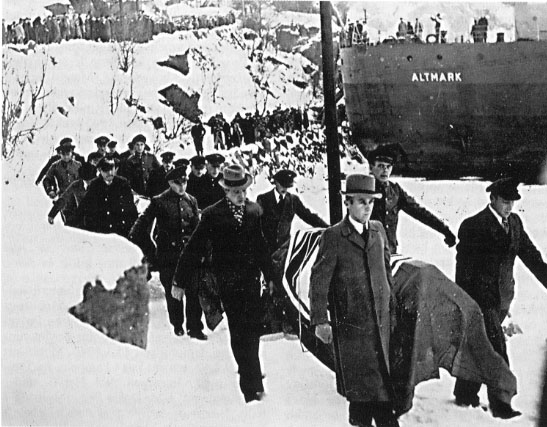|
German Invasion
German invasion may refer to: Pre-1900s * German invasion of Hungary (1063) World War I * German invasion of Belgium (1914) * German invasion of Luxembourg (1914) World War II * Invasion of Poland * German invasion of Belgium (1940) * German invasion of Luxembourg * German invasion of France (1940) * German invasion of the Netherlands * Operation Weserübung, Nazi Germany's invasion of Denmark and Norway ** German invasion of Denmark (1940) * German invasion of Greece ** Battle of Crete, the invasion of Crete by German and Italian forces * Invasion of Yugoslavia The invasion of Yugoslavia, also known as the April War or Operation 25, or ''Projekt 25'' was a German-led attack on the Kingdom of Yugoslavia by the Axis powers which began on 6 April 1941 during World War II. The order for the invasion was p ... * Operation Barbarossa, Nazi Germany's invasion of the Soviet Union {{Dab ... [...More Info...] [...Related Items...] OR: [Wikipedia] [Google] [Baidu] |
Invasion Of Poland
The invasion of Poland (1 September – 6 October 1939) was a joint attack on the Republic of Poland by Nazi Germany and the Soviet Union which marked the beginning of World War II. The German invasion began on 1 September 1939, one week after the signing of the Molotov–Ribbentrop Pact between Germany and the Soviet Union, and one day after the Supreme Soviet of the Soviet Union had approved the pact. The Soviets invaded Poland on 17 September. The campaign ended on 6 October with Germany and the Soviet Union dividing and annexing the whole of Poland under the terms of the German–Soviet Frontier Treaty. The invasion is also known in Poland as the September campaign ( pl, kampania wrześniowa) or 1939 defensive war ( pl, wojna obronna 1939 roku, links=no) and known in Germany as the Poland campaign (german: Überfall auf Polen, Polenfeldzug). German forces invaded Poland from the north, south, and west the morning after the Gleiwitz incident. Slovak military forces ... [...More Info...] [...Related Items...] OR: [Wikipedia] [Google] [Baidu] |
German Invasion Of Hungary (1063)
A German invasion of Hungary took place in August–September 1063, interfering in a dynastic conflict in the Kingdom of Hungary. Solomon, assisted by his brother-in-law Henry IV of Germany, decided to return to Hungary in order to his restoration to the Hungarian throne against his usurper uncle Béla I. Prior to that, Henry IV refused Béla's proposals to conclude a peace treaty with the Holy Roman Empire. German troops invaded Hungary in August 1063. Béla died in an accident unexpectedly and the German army entered Székesfehérvár. Henry installed Solomon on the throne. Background After spending fifteen years in exile, Andrew I ascended the Hungarian throne during an extensive pagan revolt in 1046, defeating Peter Orseolo, a vassal of King Henry III of Germany. Andrew soon broke with his pagan supporters, restored Christianity and declared pagan rites illegal. He requested his younger brother Béla to return to Hungary in 1048, granting him one-third of the kingdom, with ... [...More Info...] [...Related Items...] OR: [Wikipedia] [Google] [Baidu] |
German Invasion Of Belgium (1914)
The German invasion of Belgium was a military campaign which began on 4 August 1914. Earlier, on 24 July, the Belgian government had announced that if war came it would uphold its neutrality. The Belgian government mobilised its armed forces on 31 July and a state of heightened alert () was proclaimed in Germany. On 2 August, the German government sent an ultimatum to Belgium, demanding passage through the country and German forces invaded Luxembourg. Two days later, the Belgian government refused the demands and the British government guaranteed military support to Belgium. The German government declared war on Belgium on 4 August; German troops crossed the border and began the Battle of Liège. German military operations in Belgium were intended to bring the 1st, 2nd and 3rd Armies into positions in Belgium from which they could invade France, which, after the fall of Liège on 7 August, led to sieges of Belgian fortresses along the river Meuse at Namur and the surrender of t ... [...More Info...] [...Related Items...] OR: [Wikipedia] [Google] [Baidu] |
German Invasion Of Luxembourg (1914)
From August 1914 until the end of World War I on 11 November 1918, the Grand Duchy of Luxembourg was under full occupation by the German Empire. The German government justified the occupation by citing the need to support their armies in neighbouring France, although many Luxembourgers, contemporary and present, have interpreted German actions otherwise. During this period, Luxembourg was allowed to retain its own government and political system, but all proceedings were overshadowed by the German army's presence. Despite the overbearing distraction of the occupation, the Luxembourgish people attempted to lead their lives as normally as possible. The political parties attempted to focus on other matters, such as the economy, education, and constitutional reform. The domestic political environment was further complicated by the death of Paul Eyschen, who had been prime minister for 27 years. With his death came a string of short-lived governments, culminating in rebellion, an ... [...More Info...] [...Related Items...] OR: [Wikipedia] [Google] [Baidu] |
German Invasion Of Belgium (1940)
The invasion of Belgium or Belgian campaign (10–28 May 1940), often referred to within Belgium as the 18 Days' Campaign (french: Campagne des 18 jours, nl, Achttiendaagse Veldtocht), formed part of the greater Battle of France, an offensive campaign by Germany during the Second World War. It took place over 18 days in May 1940 and ended with the German occupation of Belgium following the surrender of the Belgian Army. On 10 May 1940, Germany invaded Luxembourg, the Netherlands, and Belgium under the operational plan ''Fall Gelb'' (Case Yellow). The Allied armies attempted to halt the German Army in Belgium, believing it to be the main German thrust. After the French had fully committed the best of the Allied armies to Belgium between 10 and 12 May, the Germans enacted the second phase of their operation, a break-through, or sickle cut, through the Ardennes, and advanced toward the English Channel. The German Army ('' Heer'') reached the Channel after five days, encircling ... [...More Info...] [...Related Items...] OR: [Wikipedia] [Google] [Baidu] |
German Invasion Of Luxembourg
The German invasion of Luxembourg was part of Case Yellow (german: Fall Gelb), the German invasion of the Low Countries—Belgium, Luxembourg and the Netherlands—and France during World War II. The battle began on 10 May 1940 and lasted just one day. Facing only light resistance, German troops quickly occupied Luxembourg. The Luxembourgish government, and Grand Duchess Charlotte, managed to escape the country and a government-in-exile was created in London. Background On 1 September 1939 Germany invaded Poland, initiating World War II. This put Luxembourg's Grand Ducal government in a delicate situation. On the one hand, the population's sympathies laid with the UK and France; on the other hand, due to the country's policy of neutrality since the Treaty of London in 1867, the government adopted a careful non-belligerent stance towards its neighbours. In accordance with the treaty's restrictions, the only military force Luxembourg maintained was its small Volunteer Corps und ... [...More Info...] [...Related Items...] OR: [Wikipedia] [Google] [Baidu] |
German Invasion Of France (1940)
German(s) may refer to: * Germany (of or related to) **Germania (historical use) * Germans, citizens of Germany, people of German ancestry, or native speakers of the German language ** For citizens of Germany, see also German nationality law ** Germanic peoples (Roman times) * German language **any of the Germanic languages * German cuisine, traditional foods of Germany People * German (given name) * German (surname) * Germán, a Spanish name Places * German (parish), Isle of Man * German, Albania, or Gërmej * German, Bulgaria * German, Iran * German, North Macedonia * German, New York, U.S. * Agios Germanos, Greece Other uses * German (mythology), a South Slavic mythological being * Germans (band), a Canadian rock band * "German" (song), a 2019 song by No Money Enterprise * '' The German'', a 2008 short film * " The Germans", an episode of ''Fawlty Towers'' * ''The German'', a nickname for Congolese rebel André Kisase Ngandu See also * Germanic (disambiguatio ... [...More Info...] [...Related Items...] OR: [Wikipedia] [Google] [Baidu] |
German Invasion Of The Netherlands
The German invasion of the Netherlands ( nl, Duitse aanval op Nederland), otherwise known as the Battle of the Netherlands ( nl, Slag om Nederland), was a military campaign part of Case Yellow (german: Fall Gelb), the Nazi German invasion of the Low Countries (Belgium, Luxembourg, and the Netherlands) and France during World War II. The battle lasted from 10 May 1940 until the surrender of the main Dutch forces on 14 May. Dutch troops in the province of Zeeland continued to resist the ''Wehrmacht'' until 17 May when Germany completed its occupation of the whole country. The invasion of the Netherlands saw some of the earliest mass paratroop drops, to occupy tactical points and assist the advance of ground troops. The German ''Luftwaffe'' used paratroopers in the capture of several airfields in the vicinity of Rotterdam and The Hague, helping to quickly overrun the country and immobilise Dutch forces. After the devastating Nazi bombing of Rotterdam by the ''Luftwaffe'' on 14 ... [...More Info...] [...Related Items...] OR: [Wikipedia] [Google] [Baidu] |
Operation Weserübung
Operation Weserübung (german: Unternehmen Weserübung , , 9 April – 10 June 1940) was Germany's assault on Denmark and Norway during the Second World War and the opening operation of the Norwegian Campaign. In the early morning of 9 April 1940 (''Wesertag'', "Weser Day"), Germany occupied Denmark and invaded Norway, ostensibly as a preventive manoeuvre against a planned, and openly discussed, French-British occupation of Norway known as Plan R 4 (actually developed as a response to any German aggression against Norway). After the occupation of Denmark (the Danish military was ordered to stand down as Denmark did not declare war with Germany), envoys of the Germans informed the governments of Denmark and Norway that the ''Wehrmacht'' had come to protect the countries' neutrality against Franco-British aggression. Significant differences in geography, location and climate between the two nations made the actual military operations very dissimilar. The invasion fleet's n ... [...More Info...] [...Related Items...] OR: [Wikipedia] [Google] [Baidu] |
German Invasion Of Denmark (1940)
The German invasion of Denmark (german: Operation Weserübung – Süd), was the German attack on Denmark on 9 April 1940, during the Second World War. The attack was a prelude to the invasion of Norway (german: Weserübung Nord, 9 April – 10 June 1940). Denmark's strategic importance for Germany was limited. The invasion's primary purpose was to use Denmark as a staging ground for operations against Norway, and to secure supply lines to the forces about to be deployed there. An extensive network of radar systems was built in Denmark to detect British bombers bound for Germany. The attack on Denmark was a breach of the non-aggression pact Denmark had signed with Germany less than a year earlier. The initial plan was to push Denmark to accept that German land, naval and air forces could use Danish bases, but Adolf Hitler subsequently demanded that both Norway and Denmark be invaded. Denmark's military forces were inferior in numbers and equipment, and after a short battle we ... [...More Info...] [...Related Items...] OR: [Wikipedia] [Google] [Baidu] |
German Invasion Of Greece
The German invasion of Greece, also known as the Battle of Greece or Operation Marita ( de , Unternehmen Marita, links = no), was the attack of Greece by Italy and Germany during World War II. The Italian invasion in October 1940, which is usually known as the Greco-Italian War, was followed by the German invasion in April 1941. German landings on the island of Crete (May 1941) came after Allied forces had been defeated in mainland Greece. These battles were part of the greater Balkans Campaign of the Axis powers and their associates. Following the Italian invasion on 28 October 1940, Greece, with British air and material support, repelled the initial Italian attack and a counter-attack in March 1941. When the German invasion, known as Operation Marita, began on 6 April, the bulk of the Greek Army was on the Greek border with Albania, then a vassal of Italy, from which the Italian troops had attacked. German troops invaded from Bulgaria, creating a second front. Greece recei ... [...More Info...] [...Related Items...] OR: [Wikipedia] [Google] [Baidu] |
Battle Of Crete
The Battle of Crete (german: Luftlandeschlacht um Kreta, el, Μάχη της Κρήτης), codenamed Operation Mercury (german: Unternehmen Merkur), was a major Axis airborne and amphibious operation during World War II to capture the island of Crete. It began on the morning of 20 May 1941, with a multiple German airborne landings on Crete. Greek and other Allied forces, along with Cretan civilians, defended the island. After only one day of fighting, the Germans had suffered heavy casualties and the Allied troops were confident that they would defeat the invasion. The next day, through communication failures, Allied tactical hesitation, and German offensive operations, Maleme Airfield in western Crete fell, enabling the Germans to land reinforcements and overwhelm the defensive positions on the north of the island. Allied forces withdrew to the south coast. More than half were evacuated by the British Royal Navy and the remainder surrendered or joined the Cretan resistan ... [...More Info...] [...Related Items...] OR: [Wikipedia] [Google] [Baidu] |





